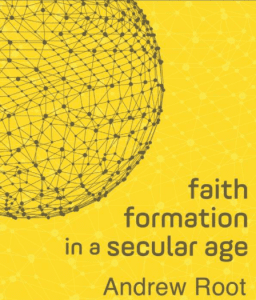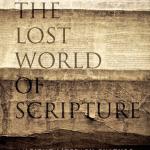 In Andrew Root’s Faith Formation in a Secular Age, he sketches three kinds of Secular:
In Andrew Root’s Faith Formation in a Secular Age, he sketches three kinds of Secular:
Secular 1: Sacred versus Secular Planes
Secular 2: Religious versus A-religious Spaces
Secular 3: The Negating of Transcendence
What happens to justification by faith in Secular 3? If Secular 2 is more negotiated space, what about Secular 3? Bigger one: if justification tends to be expressed at times as a legal fiction (only a standing, only a declaration, only judicial), can justification be valued in Secular 3 when experience matters deeply? Can justification be connected to the experience of transformation?
Here we go.
Root’s opening contextual description as well as the summary claims of the chapter: the age of authenticity values experience; justification by faith alone is a disposition open to God’s ministering to us in Christ through the Spirit; faith then is openness to God’s person indwelling our person; ministry then is about this kind of faith-alone-justification-experiencing of God. It is transformative.
Now Root:
The age of authenticity allows us all to continue to seek a sense of “fullness”—for experiences that feel like transformation, giving us meaning and purpose. There becomes a nova effect—all sorts of new ways to seek this transformation, like new therapies, spiritualities, sexual expressions, fashions, and more. Oddly, while Secular 3 claims that existence is only material and natural, we cannot live with this, and the age of authenticity cannot stand for it, pushing us into seeking all sorts of transformations that might give us a sense of fullness.
This propensity in the age of authenticity gives us again the opening to make a case for divine action that is bound to justification. This makes “faith alone” not solely the epistemological submission to the rule of a sovereign but an encounter with the real presence of Christ, who transforms us (theosis) through a (hypostatic) union bound in our death experience (kenosis). Justification, then, must also be imagined as the very act of ministry.
To be justified by faith alone is to see faith alone as the human disposition that opens itself to the ministerial being of God, who through the personhood of the Son joins our persons by overcoming our deaths through the transformational power of the Spirit. We are made into Christ (theosis) by experiencing the ministry of Christ, who gives us his life out of our deaths. Justification is not simply a picture of a sovereign, ruling God but the articulation of the depth of God’s own ministry. Justification begins with the divine proclamation that we are lost in sin and death and therefore always need the ministry of the Father to the Son (through the Spirit) to transform our very being from death to life. It is ministry itself, I contend, that is the power of transformation in the world. All forms of transformation that bring life, wholeness, and healing take the shape of ministry. Even articulations of such transformation outside the church often claim ministry (without using the word) as the catalyst of transformation (e.g., “If it wasn’t for Laura, I’d still be drunk, killing myself with every shot,” someone might say). To see how justification is the ministry of transformation, we must return to Paul and righteousness.
For Root, God is not a scorekeeper as God is for so many today; rather, God is a minister.
Then who this God is, revealed in justification, is not an accountant or a scorekeeper but a minister who comes to your dying person with a personhood (hypostasis) that enters your death experiences as an act of ministry (kenosis) so that you might be free from serving death and be (not a clairvoyant shaman but) a minister to your neighbor (theosis). You need not the idea of a foreign righteousness that changes your attitude but the personhood of a minister who can transform your very being, leading you through death into union with a new being who has overcome death so fully that you are now free to reenter death as a minister who loves persons. “Justification, then,” as Gorman says, “is about reconciliation, covenant, community, resurrection, and life. And this reality is brought about by death—Christ’s death for us in the past and our death with Him in the present.”
Too often sin and justification and faith are shaped entirely into a negative; Root reframes:
It’s not that you suck or that when God looks at you, God only sees Jesus. Rather, you are invited to recognize and admit your places of isolation, rejection, loneliness, and fear and to find that Jesus is there with you—through your brokenness you find yourself loved by a minister and sent into the world to minister to your neighbor.












